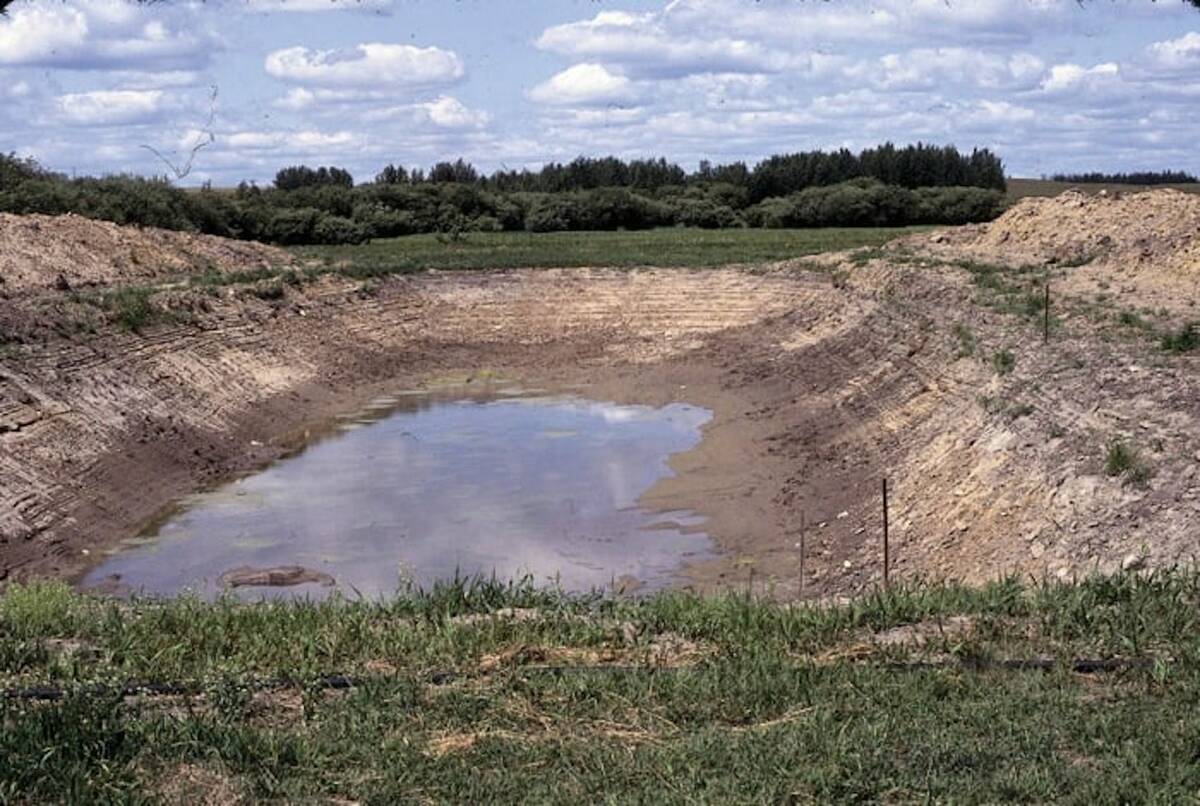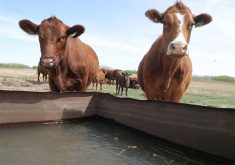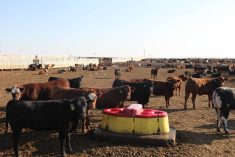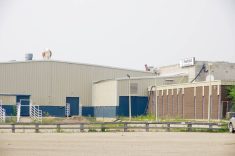MERRITT, B.C. – Susan Hoszouski does not expect women’s institute members to take it all off like their British counterparts, but she does want some innovative ideas to capture attention for the century-old organization.
Last year, 12 members of a women’s institute in Liverpool, England, posed nude for a calendar to earn money for leukemia research. The volunteer models aged 40 to 60 stripped for the camera but concealed the “naughty bits” with afghans, discreet poses and kitchen appliances. The calendar, printed in sepia tones, received mixed reviews.
“I didn’t see anything wrong with it. I thought what an innovative idea,” Hoszouski said, while demurely adding she is not ready to go that far for the British Columbia Women’s Institute.
Read Also

Dry summer conditions can lead to poor water quality for livestock
Drought conditions in the Prairies has led to an decrease in water quality, and producers are being advised to closely monitor water quality for their animals.
Installed as president for three years, Hoszouski is fitting the job into an already busy life. A mother of four and grandmother of one, she works part time and is involved with 4-H at the provincial level. She has held nearly every office at the branch and district level of the East Kootenays WI.
Like her predecessors, she knows flagging membership is a problem that must be met head on. Following in the footsteps of her grandmother and mother, Hoszouski has been a WI member for 25 years and wants to see the provincial membership increase by at least 100 people by the end of her term.
“To see this happen, we have to improve communication. The theme for the next three years will be ‘communication is the key.’ “
In some communities the institute is respected for its charity work and educational opportunities for women. In other communities, it is practically invisible.
Yet WI is attracting more young women to its 31 branches, which include urban and rural members.
Times are tough on the farm in B.C. and Hoszouski sees more women coming to the organization searching for friendship and a way to make a difference in their communities.
“In affluent times people feel they can get along on their own. When times get a little harder, people join together.”
During her tenure, she wants the institute to continue its involvement in agriculture awareness and food safety.
“Safe food is great, but until we take pride in our agricultural industry, then some of the food issues would follow.
“The whole province has to be more aware of agriculture in order to get safe food.”

















